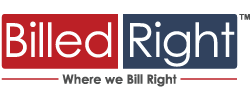Driving Financial Success: Integrating Eligibility Verification Systems into your Practice

Integrating Eligibility Verification Systems in Healthcare
Understanding Eligibility Verification Systems
Eligibility verification systems are crucial tools in the healthcare industry. They allow healthcare providers to confirm a patient’s insurance coverage and benefits before delivering services. By utilizing these systems, providers can determine whether a patient qualifies for specific treatments or procedures based on their insurance plan.
These systems typically integrate with electronic health record (EHR) systems, enabling real-time access to patient data. This integration enhances the efficiency of the verification process and helps reduce errors associated with manual checks.
The following table outlines the key features of eligibility verification systems:
| Feature | Description |
|---|---|
| Real-Time Access | Allows immediate verification of patient data |
| Integration with EHR | Connects seamlessly with existing health records |
| User-Friendly Interface | Simplifies the verification process for staff |
| Reporting Capabilities | Offers insights into verification efficiency |
Importance of Integration for Financial Success
Integrating eligibility verification systems is vital for the financial health of healthcare organizations. When these systems are combined with existing workflows, they significantly enhance revenue cycle management. The integration fosters timely pre-authorization and eligibility checks, reducing the risk of claim denials and improving cash flow.
By minimizing the time spent on manual verification processes, staff can focus more on patient care and less on administrative tasks. This transition can lead to increased patient satisfaction and a stronger financial performance overall.
Key benefits of integrating these systems include:
| Benefit | Description |
|---|---|
| Reduced Claim Denials | Ensures accurate information is collected before services |
| Improved Cash Flow | Faster payment cycles due to efficient eligibility checks |
| Enhanced Compliance | Helps in adhering to insurance regulations |
| Streamlined Workflows | Automates routine tasks, allowing staff to manage exceptions |
The importance of insurance eligibility checks cannot be overstated. Integrating eligibility verification systems not only ensures a smoother operation of healthcare providers but also contributes to their financial success.
Key Considerations for Integration
Integrating eligibility verification systems in healthcare requires careful consideration to optimize processes and ensure financial success. Focusing on workflow, data accuracy, and revenue cycle management is essential for healthcare professionals seeking to enhance their operations.
Streamlining Workflow Processes
Streamlining workflow processes is critical for maximizing efficiency within healthcare settings. An integrated eligibility verification system can automate many steps in the verification cycle, reducing manual intervention and the associated risks of human error. Automation enables healthcare staff to focus on patient care rather than administrative tasks.
The following table outlines common steps in eligibility verification and their automation potential:
| Step | Manual Process | Automation Potential |
|---|---|---|
| Collecting patient information | High | Low |
| Checking coverage | Medium | High |
| Confirming benefits | Medium | High |
| Updating records | High | Medium |
By adopting automated tools, healthcare providers can achieve a more streamlined workflow, reduce wait times, and enhance patient satisfaction.
Ensuring Data Accuracy
Accurate data is essential for effective eligibility verification. Inaccurate information can lead to denied claims, resulting in delayed payments and financial loss. Therefore, ensuring precision in patient and insurance data is a priority.
Utilizing integrated systems can greatly enhance data accuracy. These systems enable real-time eligibility checks, allowing for immediate updates and corrections. Healthcare providers can significantly reduce errors by automating data entry and verification processes.
The following factors contribute to data accuracy:
| Factor | Impact on Accuracy |
|---|---|
| Data Entry Methods | High |
| System Integration | Very High |
| Staff Training | Medium |
| Regular Audits | High |
Regular audits and employee training on data management can further bolster data integrity.
Enhancing Revenue Cycle Management
Effective revenue cycle management (RCM) is crucial to any healthcare organization’s financial health. Integrating eligibility verification systems contributes significantly to RCM by minimizing claim denials and ensuring timely reimbursements.
A seamless eligibility verification process can prevent claim denials, allowing healthcare providers to receive payments quickly.
Integrating verification systems leads to faster claims processing and improved cash flow.







